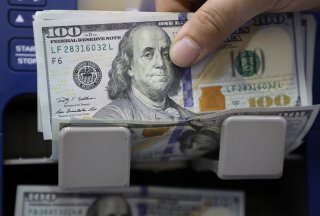Your Unemployment Benefits Could Cause the IRS to Contact You
As for the refunds on the federal benefits, the IRS has already indicated that it will automatically adjust tax returns if individuals qualify for a refund.
Here's What You Need to Remember: Twenty-five states are withdrawing early from the federally-run enhanced $300 weekly unemployment program. Alaska, Iowa, Mississippi, and Missouri are the first to opt out when it officially takes effect on June 12.
The Internal Revenue Service made quite a splash recently when it announced that more than 2.8 million refunds for 2020 unemployment benefits were sent out to eligible Americans.
That story, however, left out any mention of when struggling taxpayers can get their hands on unemployment tax refunds from their respective states. And the entire process seems to be highly complicated for many of the states involved in disbursing the funds to their residents.
For example, the Michigan Treasury is still waiting for IRS guidance on how to issue the refunds, and it doesn’t even know how many residents are owed the checks. Individuals in that state, though, can file an amended state tax return that could potentially fast-track the money.
As for the refunds on the federal benefits, the IRS has already indicated that it will automatically adjust tax returns if individuals qualify for a refund.
“Because the change occurred after some people filed their taxes, the IRS will take steps in the spring and summer to make the appropriate change to their return, which may result in a refund,” the IRS said.
In addition, according to the most recent release, individuals will be getting IRS letters “generally within thirty days of the adjustment, informing them of what kind of adjustment was made (such as refund, payment of IRS debt payment or payment offset for other authorized debts) and the amount of the adjustment.”
The IRS has stated that roughly ten million Americans likely overpaid on their unemployment taxes in 2020 and qualify for the refunds that could amount to thousands of dollars.
This newest cash windfall is from President Joe Biden’s $1.9 trillion American Rescue Plan, which was able to waive federal tax on up to $10,200 of unemployment benefits that were collected by taxpayers last year. The amount doubles to $20,400 for married couples filing jointly.
Meanwhile, twenty-five states are withdrawing early from the federally-run enhanced $300 weekly unemployment program. Alaska, Iowa, Mississippi, and Missouri are the first to opt out when it officially takes effect on June 12.
For weeks, the Republican governors in these states have contended that the $300 weekly checks are keeping thousands of individuals out of the workforce.
However, not all Americans are satisfied with their state's decision. For example, in Texas, a petition calling for the governor to reverse his decision already has garnered nearly ten thousand signatures.
“The last year has been hard on so many of the sons and daughters of Texas. COVID-19 brought with it unexpected consequences in multiple areas of life. Socially, physically, emotionally, financially, and probably more than we haven’t realized yet,” the petition wrote.
“What you’re saying is that you alone know the cases of each individual on unemployment and not one of them needs it. That is vanity at best and dictatorship at worst,” it added.
Ethen Kim Lieser is a Minneapolis-based Science and Tech Editor who has held posts at Google, The Korea Herald, Lincoln Journal Star, AsianWeek, and Arirang TV. Follow or contact him on LinkedIn. This article first appeared earlier this year.
Image: Reuters

